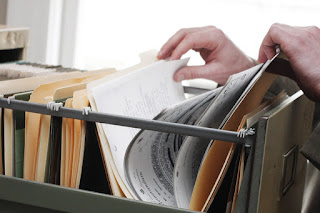Travelling
provides an excellent opportunity to catch up on some reading. Tim Marshall’s Prisoners of Geography provided
absorbing material for my recent Eurostar trip to Brussels.
Brexit seemed to
be on the minds and tongues of everyone I met in Brussels – from the European
Parliament to the EU Studies Fair, as well as on all newsstands and points in
between. Questions and what ifs abounded. It was interesting to hear and read
views on our island nation from outside our borders.
Britain has been
blessed by its geography unlike many countries described in Tim Marshall’s
book. It has been our fortune to be
“close enough to the European Continent to trade
and yet protected by dint of being an island race”
(p91).
Our geography has shaped our independent
spirit. We are also seen as being
“at one remove from living with the historical
collective memory
of frequent invasions and border change” (p91).
Thanks to our
geography we have grown accustomed to punching above our size and weight
globally. As the sole Brit, I was outnumbered by youthful representatives from
the other 27 member states on the European Parliament tour. There were also
young visitors from candidate countries.
I couldn’t help
wondering how Britain’s future generations would feel about being outside the “club”
whatever its faults. The Union Jack seemed to be on the way out already. Then,
I realised that its position at the end of the line was probably due to the
diplomatic use of alphabetical order.
Our excellent
Latvian guide was very open in discussing both the good and bad aspects of the
European Parliament. He mentioned the financial wastefulness of the Strasbourg
Parliament. (It is still maintained due to the ongoing vetoes of France and
Luxembourg). He shared the difficulties of progressing any legislation without
Germany’s support. He mentioned the frustrations of smaller nations and parties
in getting their voices truly heard.
Human rights were
seen as a strong area for the EU. For example, the EU can criticise China’s
human rights’ record and invite the Dalai Lama to speak to the Parliament
without fear of trade reprisals. The 2015
Sakharov Prize for Freedom of Thought went to the Saudi Arabian blogger, Raif
Badawi. Europe enjoys peace and freedom of expression under the EU’s watchful
eye.
Prisoners
of Geography is
particularly strong in explaining how geography shapes Russia and China. It
invites the reader to picture Putin ruing the absence of mountains and watching
as the EU encroaches ever closer through the former Soviet bloc. Ukraine was “the
red line”. As Tim Marshall concludes:
“It doesn’t matter if the ideology of those in control
is tsarist,
Communist or crony capitalist – the ports still freeze,
and the North European Plain is still flat” (p25).
The world’s
flashpoints are all enlightened with reference to their geography. The Arctic
features at the end of the book. The melting ice cap is changing geography. Climate change is creating new tensions. 80% of Bangladesh is on a flood plain and it cannot
relocate. The Maldives will disappear.
In conclusion, the
author casts our eyes upwards away from the land. He refers to spy satellites
and international cooperation in space. He speculates whether we will learn to
meet the challenges ahead as “representatives of humanity” rather than as of a
particular nationality. The road ahead seems to require even greater
cooperation, rather than a self-interested retreat within our own borders.
Tim Marshall ends on a pessimistic note:
“... we are still imprisoned in our own minds,
confined by our suspicion of the ‘other’,
and thus our primal competition for resources.
There is a long way to go. (p240).”
I hope history
will prove that he should have been more optimistic. It is an eye-opener to
discover how much world tension is based on geography rather than our
neighbours’ actual actions.
Book review details:
Tim Marshall: Prisoners of Geography. Ten maps that tell you everything you need to know about global politics. Published by Elliott & Thompson, 2015.









